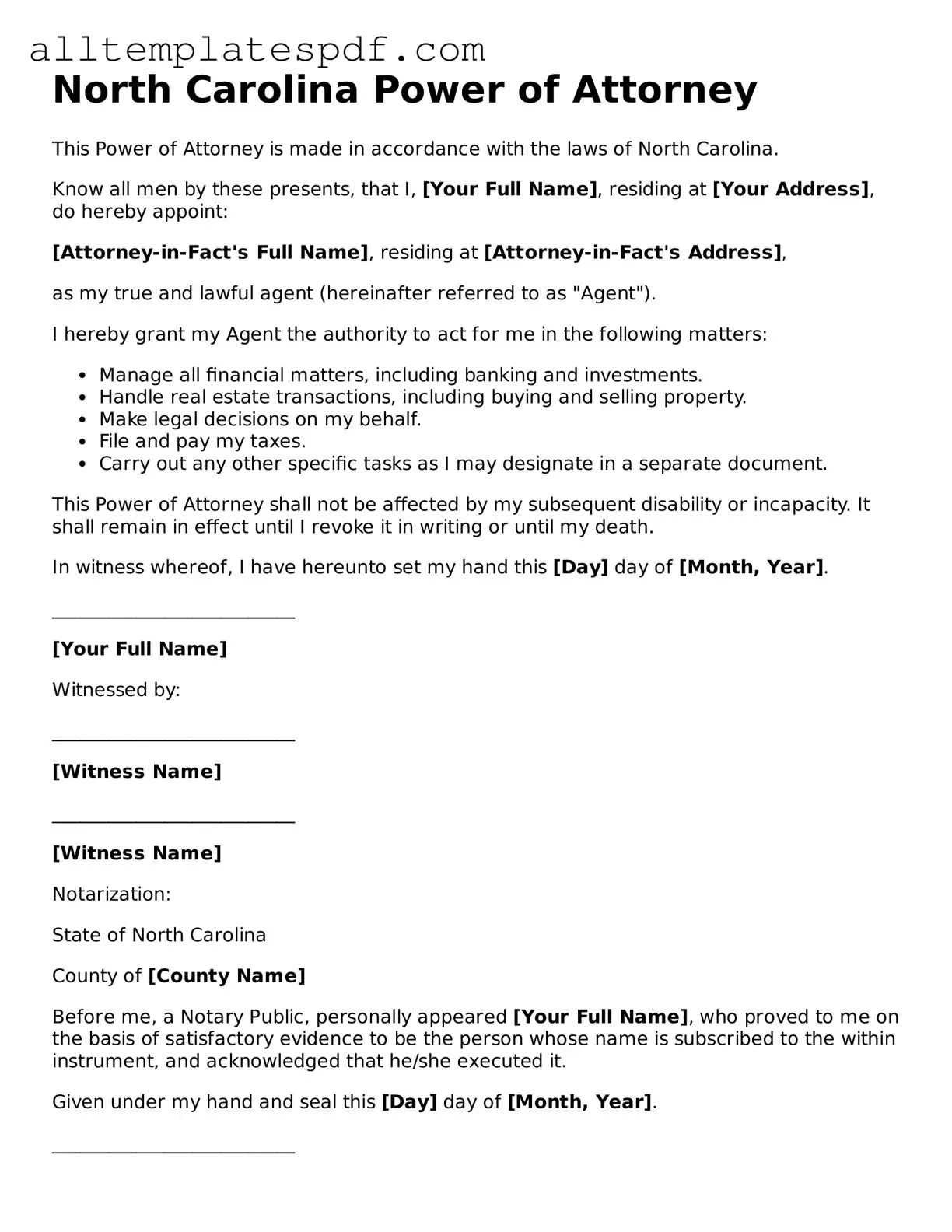Blank Power of Attorney Template for the State of North Carolina
A Power of Attorney (POA) form in North Carolina is a legal document that allows one person to authorize another to act on their behalf in various matters, such as financial or medical decisions. This form can be crucial in situations where an individual is unable to manage their affairs due to illness, absence, or incapacity. To ensure your wishes are respected, consider filling out the form by clicking the button below.
Open Editor

Blank Power of Attorney Template for the State of North Carolina
Open Editor
Fast and easy form completion
Complete Power of Attorney digitally — fast and easy.
Open Editor
or
↓ Power of Attorney PDF Form
